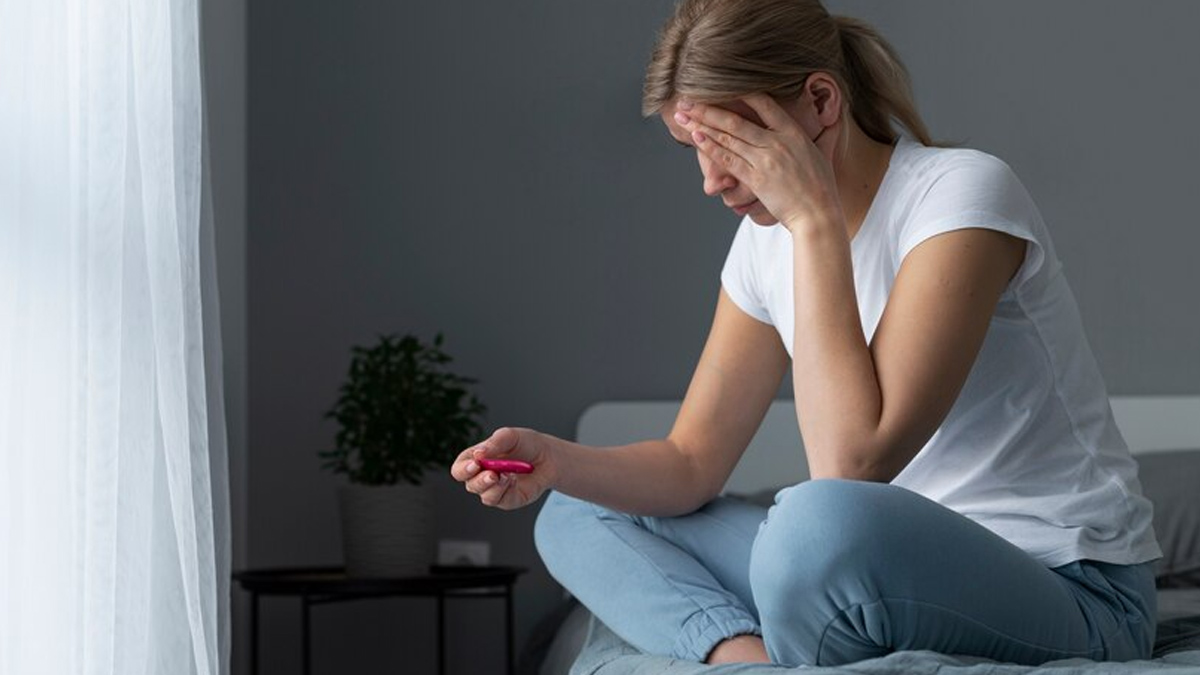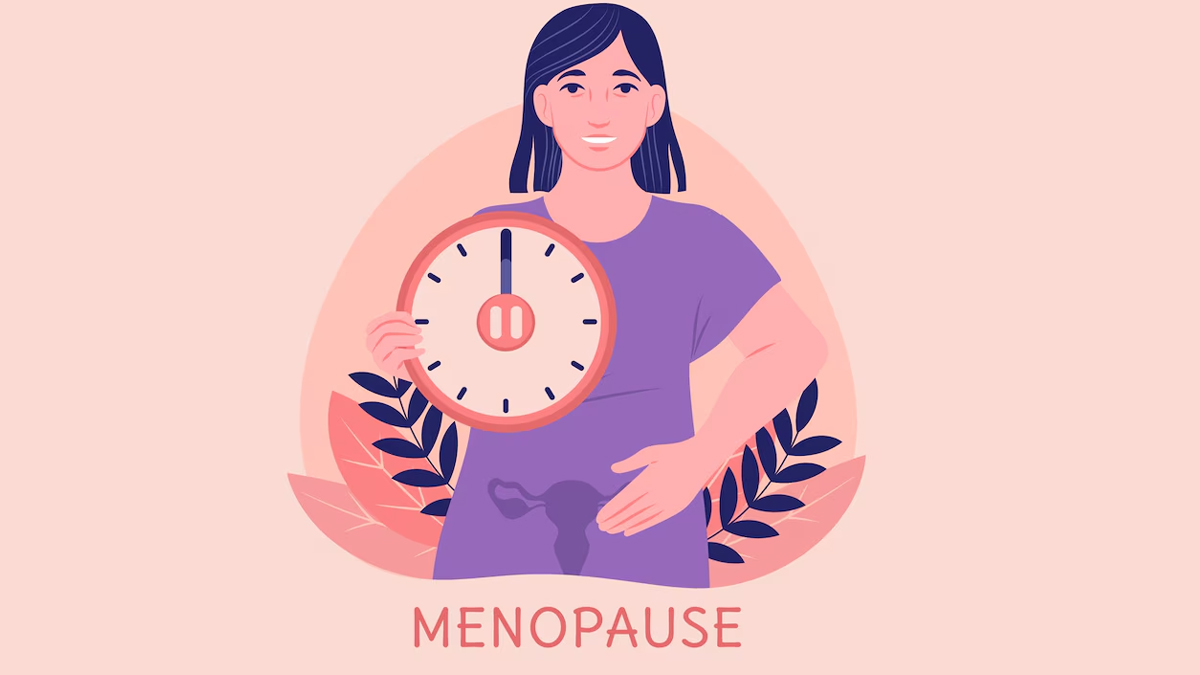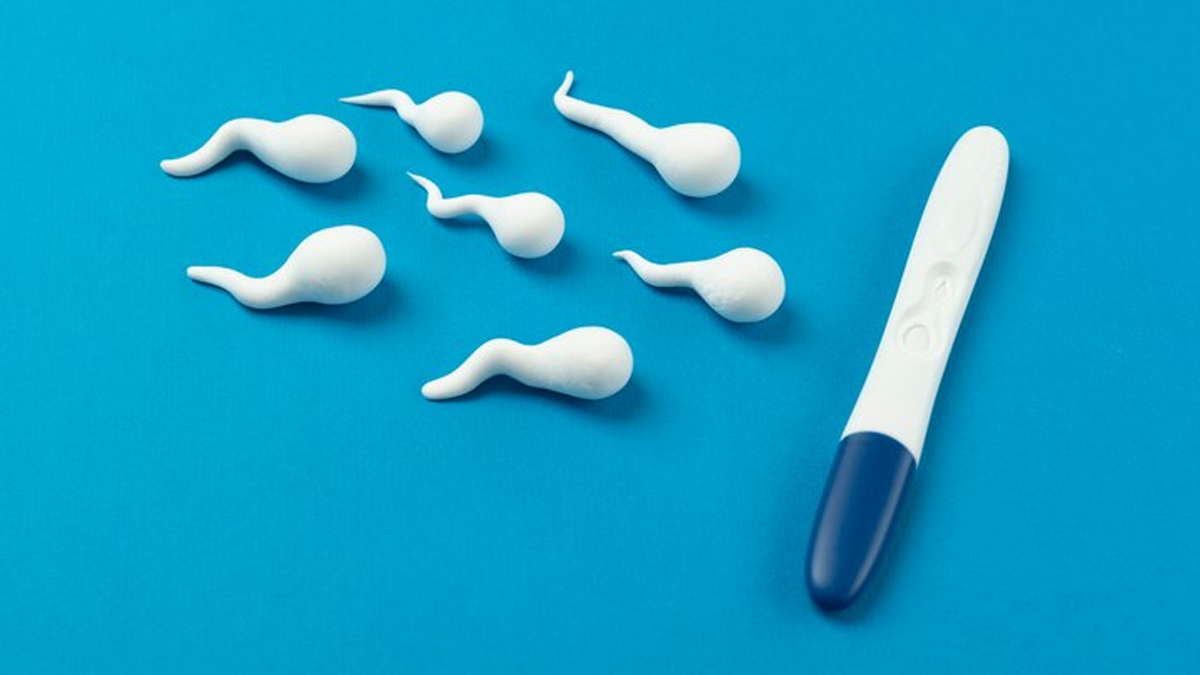
Lighter periods, also known as hypomenorrhea, can be a cause of concern for women who are trying to conceive, as they may raise questions about fertility and reproductive health. However, whether lighter periods affect your chances of getting pregnant depends on several factors, including the underlying cause of the lighter flow, overall menstrual health, and ovulatory function. Understanding how light periods relate to fertility involves looking at the menstrual cycle, ovulation, and the potential causes behind reduced menstrual flow.
Table of Content:-
To understand if lighter periods affect your chances of getting pregnant, OnlyMyHealth team interacted with Dr Sukirti Jain — Consultant Obstetrics and Gynaecology Cloudnine Group of Hospitals, Vashi, Navi Mumbai.
The Menstrual Cycle and Fertility
To comprehend how lighter periods may impact fertility, it’s essential to understand the menstrual cycle’s role in conception. “The menstrual cycle is divided into two main phases: the follicular phase and the luteal phase. Ovulation occurs in the middle of the cycle, typically around day 14 in a standard 28-day cycle. During ovulation, the ovary releases an egg, which travels through the fallopian tube, where it may meet sperm and result in fertilisation,” Dr Jain said.

A regular menstrual cycle, with consistent ovulation, is crucial for conception. Menstruation itself is the shedding of the uterine lining (endometrium) when pregnancy does not occur. A healthy uterine lining is essential for implantation, as a fertilised egg must attach to the endometrium to establish a pregnancy. “The amount of blood flow during a period can give clues about hormonal health, ovulation, and the state of the endometrial lining. Lighter periods, by themselves, don’t necessarily indicate a problem with fertility, but they can sometimes be a symptom of an underlying issue,” Dr Jain explained.
Also read: Can Stress Cause Infertility? Know From Expert
Causes of Lighter Periods and Their Impact on Fertility
Several factors can cause lighter periods, some of which may affect fertility, while others may not. Below are the most common causes explained by Dr Sukriti Jain:
1. Hormonal Imbalances
Hormonal fluctuations, especially those involving oestrogen and progesterone, are the primary cause of lighter periods. Oestrogen plays a vital role in building the uterine lining, and insufficient levels may lead to a thinner endometrium and lighter menstrual flow. “If hormone imbalances are severe enough to disrupt ovulation (such as in conditions like polycystic ovary syndrome (PCOS) or thyroid disorders), they can reduce fertility. Without ovulation, conception cannot occur, and hormonal imbalances may require medical attention to restore regular ovulation,” Dr Jain said.

2. Stress
Chronic stress can affect the menstrual cycle by altering the hypothalamic-pituitary-ovarian (HPO) axis, which regulates hormones essential for reproduction. High levels of cortisol, the stress hormone, can suppress reproductive hormones like gonadotropin-releasing hormone (GnRH), leading to lighter periods, missed periods, or irregular ovulation. While stress-related changes to menstruation are often temporary, they can interfere with ovulation, thus impacting fertility if left unchecked, Dr Jain warned.
3. Low Body Weight or Extreme Exercise
Women with low body weight or those who engage in extreme physical activity often experience lighter periods or even amenorrhea (absence of periods). Low levels of body fat can lead to decreased oestrogen production, which in turn can result in a thin uterine lining. This not only causes lighter periods but also reduces the chances of implantation and pregnancy. In these cases, improving body weight and moderating exercise can help restore normal menstrual cycles and enhance fertility.
4. Age and Perimenopause

As women age, particularly in their late 30s and 40s, the number and quality of eggs decline, and oestrogen production becomes less consistent. This transition to perimenopause is often marked by lighter or irregular periods, reflecting a decrease in fertility. According to Dr Jain, while it’s still possible to conceive in this stage, the chances may be lower compared to earlier years. Fertility treatments can sometimes help women in perimenopause who are trying to conceive.
5. Birth Control Use
Hormonal birth control methods like the pill, patch, or intrauterine devices (IUDs) often result in lighter periods or even no periods at all. “After stopping birth control, it may take a few months for the body to return to its natural rhythm and for periods to return to their typical flow. This transitional period may slightly delay conception but does not usually have long-term effects on fertility,” Dr Jain said.
6. Uterine or Ovarian Conditions
Conditions like Asherman’s syndrome, where scar tissue forms in the uterus, or ovarian disorders such as diminished ovarian reserve (DOR), can lead to lighter periods and affect fertility. “In Asherman’s syndrome, the scar tissue can interfere with the ability of a fertilised egg to implant. In such cases, fertility treatments, including surgery to remove scar tissue or assisted reproductive technologies like IVF, may be necessary,” Dr Jain emphasised.
Also read: Infertility Can Take a Toll on Mental Health: 6 Tips to Deal With It
Do Lighter Periods Always Mean Lower Fertility?

Lighter periods don’t always equate to lower fertility. Some women naturally have lighter periods and still conceive without difficulty. The critical factor is ovulation. As long as ovulation is occurring regularly and the endometrial lining is healthy enough to support implantation, conception is still possible.
It’s important to note that every woman’s menstrual flow varies, and there is no “normal” amount of blood loss that guarantees fertility. Dr Jain notes, “If you are ovulating regularly, even with lighter periods, your chances of getting pregnant are likely unaffected. However, if you have concerns about the change in your flow, irregular periods, or if you’re having difficulty conceiving, it’s essential to consult a healthcare provider for further evaluation.”
When to Seek Medical Advice
If you notice a significant change in your menstrual flow, such as consistently lighter periods or other symptoms like irregular cycles, painful periods, or lack of ovulation, it’s important to speak with a healthcare professional. They may recommend hormone testing, an ultrasound, or other diagnostic procedures to determine the underlying cause and suggest treatments that can improve both menstrual health and fertility.
Also watch this video
How we keep this article up to date:
We work with experts and keep a close eye on the latest in health and wellness. Whenever there is a new research or helpful information, we update our articles with accurate and useful advice.
Current Version